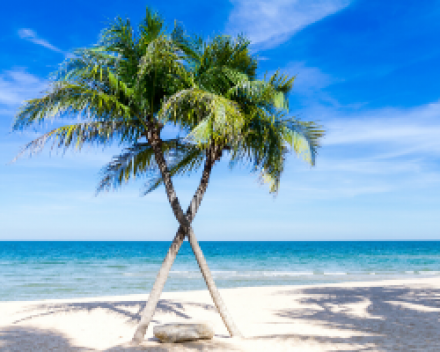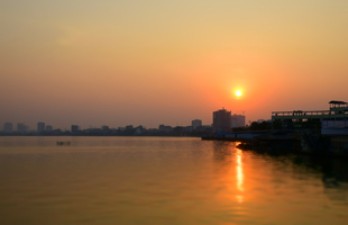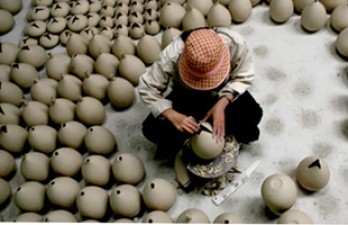Traditions & Customs in Vietnam
2Some information that you won’t find on Lonely Planet and that will help you to gain some insight into our culture. Make sure you read it before visiting Vietnam so that you can easier blend in with the locals and have a memorable trip by discovering other ways of thinking!
Through this blog post, you will learn about these traditions and customs below.
1. Ancestor Worship
Vietnamese ancestors are believed to continue to live in another realm, and that it is the duty of the living beings to meet their needs. In return, the ancestors give advice and bring good fortune. A small altar is placed in almost every house in Vietnam; it is used to commune with the departed loved ones. The rites consist of making offerings of fruits, food, wine, votive paper, lighting candles, and burning incense before praying in front of the altar.
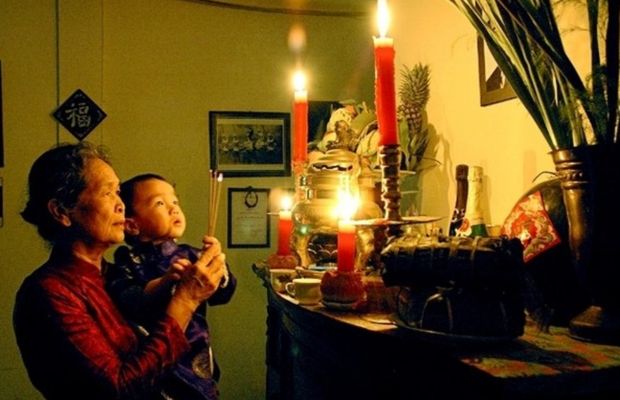
Ancestor worship in Vietnam
2. Burning votive paper
When visiting Vietnam, many of our travelers and friends who wonder “Why do Vietnamese people burn colored papers?” These papers are known as “votive papers”, which can be houses, clothes, fake money, cars, motorbikes, etc. which are made of paper. They represent gifts for their ancestors. After being burnt, a little wine is sprinkled upon the ashes so that the spirits can ascend to heaven and bring the gifts for the ancestors to use. This ritual takes place regularly on particular days such as festivals, new and full moon days, yearly ancestors’ death anniversaries, or the Lunar New Year.
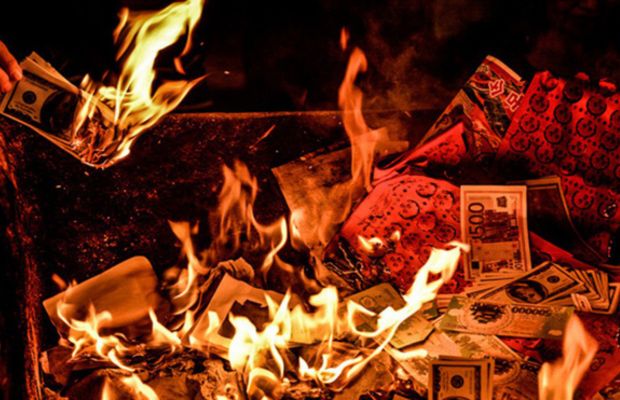
Burning votive paper in Vietnam
3. Animist beliefs
In popular Vietnamese culture, the animistic folk religions were melded with, rather than supplanted by religions such as Hinduism, Buddhism, Confucianism, Taoism, or Christianism.
Animists believe that souls or spirits exist in non-human entities as well as in humans and that all phenomena and forces in the universe are controlled by spirits and the souls of the dead, being both instrumental in determining an individual's fate. A large number of gods like the sun, the moon, the land, the mountain, the river, the water, or the tree have been worshiped since ancient times. If propitiated, they provide the living with protection; if ignored, they induce misfortune.
In Vietnam, animism is more significant among ethnic communities in the highlands. With lives that revolve around agriculture, many communities in Vietnam perform yearly or even monthly rituals to request blessings from the gods when planting and harvesting.
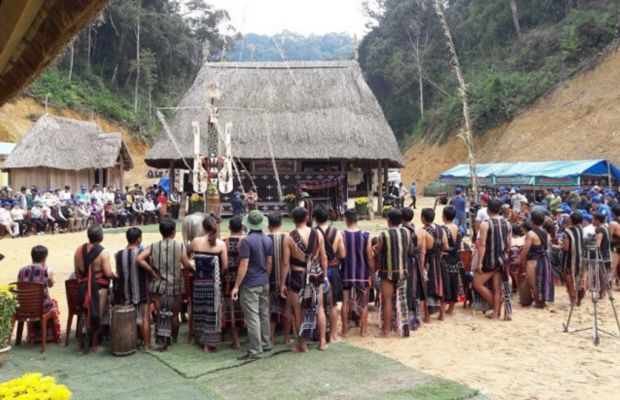
Animal beliefs in Vietnam
Before each new crop, Co To families organize a ceremony to thank the forest genie for giving them food and clothes. The offering includes wine, chicken, fish, steamed sticky rice, and fruits.
4. God of Wealth Worship in business
According to Vietnamese conception, Than Tai (God of Wealth) is a sort of "benefactor" bringing fortune into a business. In principle, the altar should be placed in a well-ventilated position, in a corner of the house or in front of the entrance. That is why you will find a small altar like this one in almost every shop, boutique, restaurant, hotel in Vietnam.
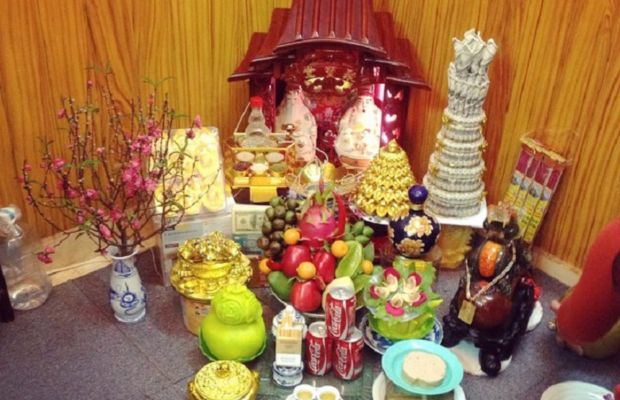
God of Wealth worship in Vietnam
5. Visiting the pagoda by the beginning of year
When spring is coming, many Vietnamese go to the pagodas and temples to pray for health, peace and happiness. This is not only simply a wish but also a moment for people to gather in a spiritual place, leaving behind the difficulties in life and feeling all together with the harmony of heaven and earth.
6. Lunar New Year reunion (Tet holiday)
The Vietnamese New Year (Tet) takes place from the first day of the first month of the Lunar calendar (around late January or early February) for at least three days. It is a joyful family reunion full of smiles and blessings to express the filial piety, the family bonds and the desire for an coming year full of happiness, prosperity and goodness.
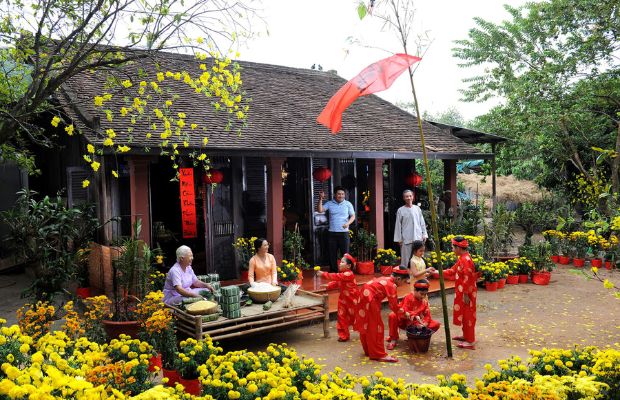
Tet Holiday in Vietnam
As you can see, Vietnam is not only a country with beautiful beaches, majestic mountains and delicious gastronomy. Throughout Vietnam’s rich and long history, what features prominently is the entire country’s effort to preserve the national identity and the fascinating cultural heritage which has been passed down from generation to generation, obtaining as a result, a sublime fusion between traditional and contemporary values.
Still worried about culture shock in Vietnam? Let's read our blog post about Vietnamese etiquettes: "Dos" and "Don'ts" when traveling to Vietnam.
__logo.png)
__hanoi-water-puppets.jpg)
__angkor-wat-blue-reflections.jpg)
__vientiane-buddha-park-monks.jpg)
